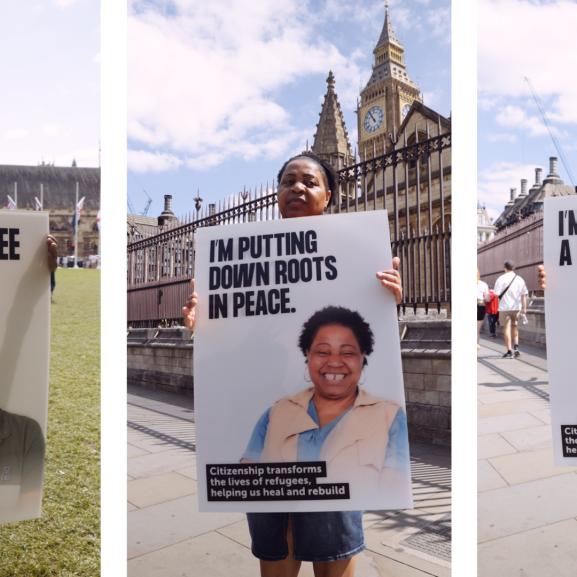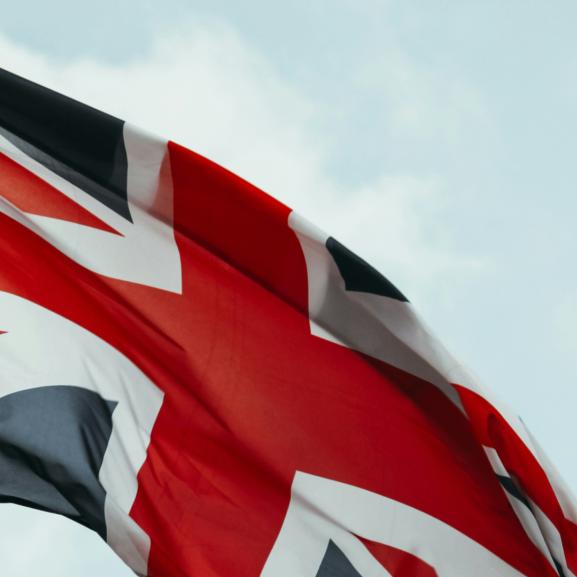General election: What's at stake for torture survivors?
Sonya Sceats, our Director of Policy and Advocacy, considers what’s at stake for torture survivors. Follow her at @SonyaSceats
The Human Rights Act is a crucial safeguard for torture survivors in the UK, protecting them against return to their torturers and from destitution, discrimination and detention in this country.
Until recently it looked as if the Act would be an election punching-bag as the Conservatives announced draft legislation to scrap the Act and replace it with a British Bill of Rights. This plan was quietly shelved and although its basic policy remains unchanged, the party has so far refrained from 'weaponizing' the Act in its election endgame.
The reality is that the Conservatives stand little chance of securing a parliamentary majority meaning they would need to rely on votes from other parties to axe the Act. UKIP, the only party that clearly backs such a move will secure a handful of seats at most.
The Liberal Democrats, who deserve much credit for saving the Act while in government, have vowed in their manifesto to continue protecting the Act. And after wobbling in its support for the Act towards the end of its last stint in government the Labour Party now pledges to maintain both the Act and the supervisory jurisdiction of the European Court of Human Rights.
The Liberal Democrats, who deserve much credit for saving the Act while in government, have vowed in their manifesto to continue protecting the Act. And after wobbling in its support for the Act towards the end of its last stint in government the Labour Party now pledges to maintain both the Act and the supervisory jurisdiction of the European Court of Human Rights.
The Greens, Plaid Cymru, Scottish National Party and Social Democratic and Labour Party in Northern Ireland have all promised to protect the Act. While the Democratic Unionist Party in NI wants to stop it being used to block deportations of those who have committed serious criminal offences, it has not called for repeal, probably because the European Convention on Human Rights, on which the Act is based, is sewn into the fabric of the Good Friday Agreement.
There is more political consensus on the importance of human rights in foreign policy, although most parties pay no more than lip service to this in their manifestos.
We welcome the Conservatives' commitment to ongoing UK leadership on prevention of sexual violence in conflict, and their promise to promote human rights and support the UN investigation into war crimes in Sri Lanka, the top country of origin for those referred to us for clinical services.
On the home front, with the exception of the Greens, who promise to strengthen and enforce anti-torture laws, there is scant focus on torture despite the glaring lack of truth and accountability for UK complicity in torture committed by the UK's security partners in the counter-terrorism context. Only the Liberal Democrats pledge "a full judicial enquiry" if the current investigation by the House of Commons Intelligence and Security Committee fails to uncover the truth.
Despite heated immigration debates, and with the notable exception of UKIP, the parties have not politicized asylum but it is a shame that none sets out plans to tackle the poor quality of asylum decision-making, the biggest problem for most torture survivors seeking sanctuary in the UK.
Labour, the Greens and Plaid Cymru all pledge to uphold the UK's international protection obligations for refugees and Labour promises to work with the UN to support vulnerable refugees from Syria. UKIP also promises to uphold the UK's obligations under the Refugee Convention although this was undermined by Farage’s recent suggestions that the UK should favour Christian refugees fleeing the Middle East and Africa.
Labour, the Greens and Plaid Cymru all pledge to uphold the UK's international protection obligations for refugees and Labour promises to work with the UN to support vulnerable refugees from Syria.
In line with our 'Poverty Barrier' report recommendations, the Liberal Democrats propose to extend the right to work to asylum seekers who have waited more than six months for their claim to be processed and end use of the Azure Card (cashless support) for refused asylum seekers. The Greens also support the right to work for asylum seekers and promise a review of asylum support levels.
Recent parliamentary criticisms of injustice in immigration detention have borne fruit. The Liberal Democrats and Labour both promise to end indefinite detention. The Greens, who outright oppose detention of asylum seekers, also call for an end to detention of children and pregnant women 'as a matter of urgency'.
Any decision to leave the European Union would carry consequences for torture survivors since EU legislation provides an important framework of minimum standards for asylum seekers, including in relation to asylum support.
There is welcome agreement across the main parties on the need to give mental health the same priority as physical health although the practical implications of this in the NHS are not spelt out in their manifestos.
Torture survivors who have been granted protection will also be impacted by important post-election decisions about investment levels and eligibility for mainstream public services including welfare, legal aid, health and housing.
Much is riding on this election for torture survivors even if, thankfully, asylum and the future of the Human Rights Act are not the battlegrounds they once were. Freedom from Torture looks forward to working with the new government to prevent torture and ensure the rights of survivors are protected.






